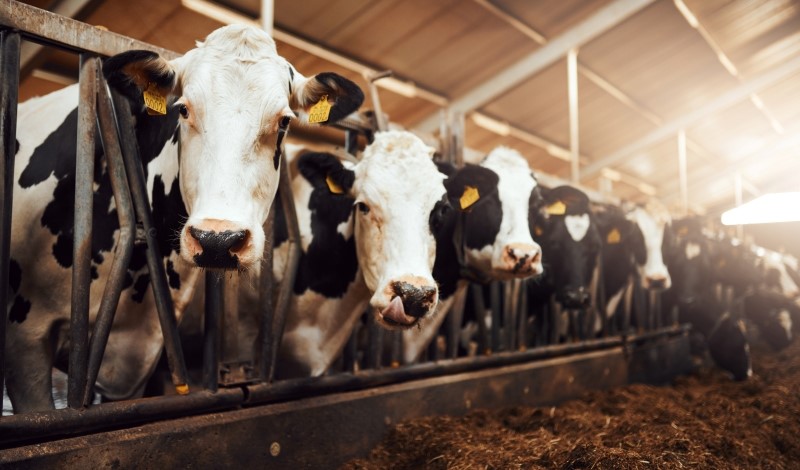
Scholar recommends that federal legislators impose humane housing requirements for all farm animals.
One in three Americans are concerned about animal welfare. Yet only 20 percent know the conditions under which most dairy, eggs, and meat products they consume are produced.
In a recent article, professor Valerie J. Watnick of Baruch College, stresses that federal regulators must take proactive measures to prevent farm animal cruelty and increase consumer transparency of farming practices. She recommends that Congress pass a federal law that establishes standards for the ethical housing of farm animals.
Currently, federal law affords minimal protection for farm animals in life or in slaughter, notes Watnick.
The Organic Food Production Act (OFPA), a federal law requiring organic farmers to raise animals in conditions tailored to their health and behavioral needs, regulates farm animals’ environment when farmers want to label their products as organic. But Watnick points out that OFPA allows farmers to bypass humane animal condition requirements. Even though farmers must provide animals with access to the outdoors, OFPA allows confinement for a non-exhaustive list of reasons, such as severe weather and preserving soil quality. OFPA also permits the physical mutilation of livestock even if it is not medically necessary.
Similarly, the Humane Slaughter Act, a federal law mandating the humane slaughter of all farm animals except poultry, is ineffective at protecting animal welfare, argues Watnick. She emphasizes that the omission of poultry from the coverage of this law is a major regulatory oversight because chickens represent 98 percent of the animals slaughtered in the United States for food.
Some states have attempted to regulate the inhumane treatment of farm animals, but enforcement of state anti-cruelty regulations is inadequate, argues Watnick. She explains that most states do not recognize “customary and usual” farming methods as cruel. Because farmers define what actions constitute customary and unusual farming methods, potential violators set the standard of acceptable actions, contends Watnick.
To ensure the well-being of animals and provide consumers with transparency about their food, federal legislators should specify minimum space requirements for raising farm animals, advises Watnick.
Watnick uses California’s Proposition 12, which bans the sale of products from farms that inhumanely confine animals, as an example of a law that promotes humane farming practices.
Under Proposition 12, all farm animals must live in areas that allow them to lie down, fully extend their limbs, stand up, and turn around. Each species has unique minimum space requirements according to their health needs.
Unlike existing federal anti-cruelty laws, which rely on law enforcement to monitor cruel farming practices, Proposition 12 allows the California Department of Food and Agriculture to oversee compliance.
A comparable federal standard on the humane treatment of animals would establish acceptable housing environments for all farm animals, guaranteeing sufficient space for stretching, moving, and accessing food and water, proposes Watnick. Watnick clarifies that her proposal would expand the protections under Proposition 12 by safeguarding farm animals during transportation to slaughterhouses. She notes that farmers could not evade these housing requirements, irrespective of weather, soil, or other environmental justifications used under the existing regulatory framework.
According to Watnick, a federal standard would permit farm animals to engage in their natural behaviors. For example, when afforded with adequate space, cows build nests for calves and graze.
In addition, providing farm animals with humane living conditions would reduce the need for physical mutilation practices currently employed by farmers, predicts Watnick.
To facilitate compliance with humane conditions for farm animals, the U.S. Department of Agriculture should be authorized to suspend or revoke farming licenses to those in violation of anti-cruelty laws, advises Watnick. She recommends that the agency should also periodically determine whether federal confinement conditions sufficiently protect animal welfare. Watnick notes that this oversight process would reduce the influence potential violators have over what constitutes cruel farming practices.
Industrialized farming companies, however, may be a challenge for implementing a federal system of heightened regulation. Opponents claim that the housing condition requirements could create a shortage of animal products because companies would be unable to produce enough to meet demand. Meat companies also suggest that increased regulation of farm animal products can result in price increases for consumers.
Watnick argues that her proposal is consistent with consumers’ desires, as they are concerned about the process behind their food and animal welfare. Over 70 percent of consumers state that they pay attention to labels describing how the animals were raised. Watnick emphasizes that a federal law mandating the ethical treatment of farm animals would still allow industrialized farming companies to meet consumer demands while also providing transparency and humane practices.



